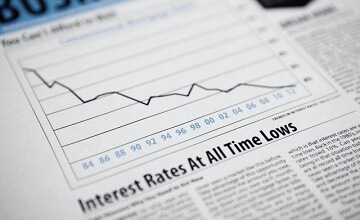Is Debt Consolidation Right for You? A Checklist for Homeowners
Struggling to keep track of multiple debt payments each month? For many Australian homeowners, juggling different debts—whether it’s credit card balances, personal loans, or mortgage repayments—can become overwhelming. Debt consolidation could be a way to simplify finances and regain control. But before diving in, it’s important to understand the ins and outs of debt consolidation, along with the options and risks involved. Here’s a practical checklist to help you assess if consolidating debt is the best solution for your financial situation. Step 1: Understand What Debt Consolidation Involves Before diving into debt consolidation, let’s clarify what it means. Debt consolidation combines multiple debts into a single loan. Instead of paying off several balances at varying interest rates, you roll everything into one payment. This often makes managing your debts easier and could even lower your monthly payments. Step 2: Evaluate Your Current Debts and Expenses Start by listing each debt, including the balance, interest rate, and monthly payment amount. Are your current debts high interest? If so, a lower-rate consolidation loan could help reduce what you pay over time. Tip – Use an online debt consolidation calculator to help compare the cost of consolidating with your current debts. Step 3: Consider Your Debt Consolidation Options When it comes to debt consolidation, homeowners have several options and choosing the right one depends on your financial needs. Here’s how a few of the common options might look in practice: Personal Loan Suppose you have multiple high-interest credit card debts. By taking out a personal loan with a lower fixed interest rate, you could pay off all your cards at once and then make just one monthly payment on the loan, potentially saving on interest and simplifying your finances. Balance Transfer Credit Card Imagine you have a $5,000 credit card balance with a high interest rate. Transferring this balance to a credit card with a 0% introductory rate for 18 months would give you a period of interest-free payments. If you pay off the balance before the promo period ends, you could avoid paying interest altogether. However, it’s essential to stick to a repayment plan to clear the debt before the higher rate resumes. Home Equity Loan If you have equity in your home, this can be an option to access funds at lower interest rates. A home equity loan provides a lump sum that can be used to consolidate debts, while a home equity line of credit (HELOC) works more like a credit line that you draw from as needed. For instance, if you have $15,000 in credit card and personal loan debt, a home equity loan could help you pay off these balances with a lower interest rate, freeing up cashflow. Keep in mind, though, that your home acts as collateral, so this option requires a commitment to regular repayments. Step 4: Check Potential Risks Debt consolidation can simplify finances, but there are risks involved. Here are some to watch out for: After reviewing your debts, consolidation options, and potential risks, take stock. Are you looking for simplicity, lower interest rates, or lower monthly payments? Can you commit to responsible spending to avoid new debt? If you’re still unsure, a mortgage broker can help you assess your options, evaluate potential savings, and choose the best approach based on your financial goals. Take control of your debt today—reach out to a mortgage broker and explore your debt consolidation options. The information provided in this article is general in nature only and does not constitute personal financial advice.





